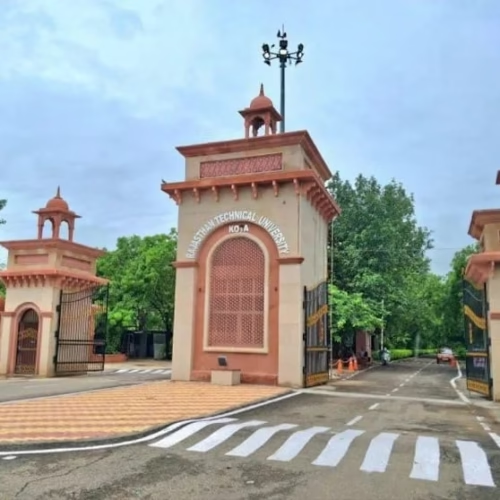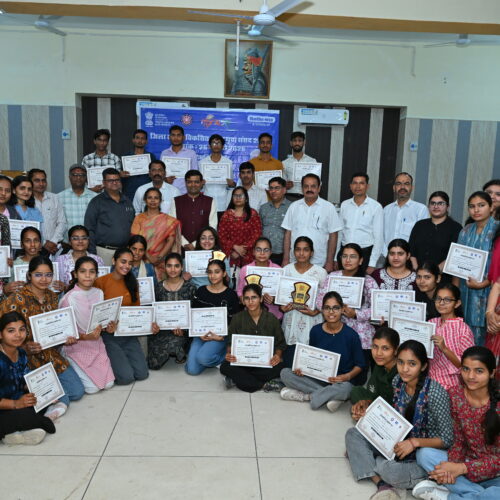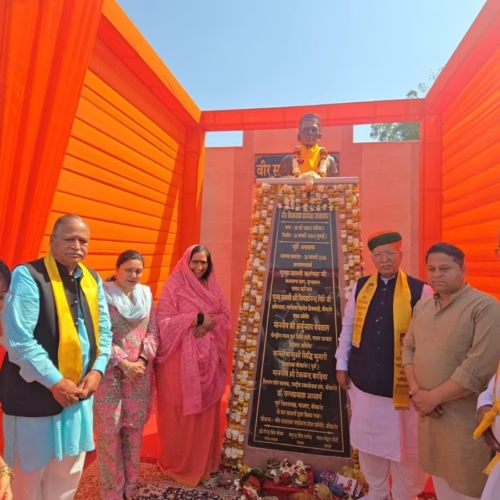BY DEFENCE JOURNALIST SAHIL | T.I.N. NETWORK
India Slams Illegal Court of Arbitration’s Supplemental Award on Indus Waters Treaty, Declares Proceedings Null and Void
New Delhi | June 27, 2025:
In a strong and unequivocal statement, the Ministry of External Affairs (MEA), Government of India, has categorically rejected the latest move by the so-called Court of Arbitration, which has issued a “supplemental award” concerning the Kishenganga and Ratle hydroelectric projects located in the Indian Union Territory of Jammu and Kashmir.
India has termed the Court of Arbitration “illegally-constituted” and stated that its formation itself is a flagrant violation of the Indus Waters Treaty (IWT) of 1960. The MEA has clarified that India does not recognize the legal existence of this arbitral body and has consistently opposed its proceedings as illegitimate, illegal, and entirely void.
India’s Stance on the So-Called Court of Arbitration
The latest development comes amidst heightened tensions between India and Pakistan, particularly in the backdrop of the Pahalgam terrorist attack, which India has squarely blamed on cross-border terrorism emanating from Pakistan.
Reiterating India’s position, the MEA asserted that following the Pahalgam attack, India has invoked its sovereign rights under international law to place the Indus Waters Treaty in abeyance. The decision to suspend the treaty’s obligations reflects India’s firm stance that Pakistan must “credibly and irrevocably abjure” its support for cross-border terrorism before any resumption of treaty obligations can be considered.
“No Court of Arbitration, especially one that has been illegally constituted and lacks any standing in international law, has the jurisdiction to examine India’s sovereign actions,” the MEA stated firmly.
India Rejects Supplemental Award as ‘Illegal and Void’
The MEA’s statement declared the supplemental award concerning the Kishenganga and Ratle hydroelectric projects as completely illegal, null, and void. India has made it clear that it does not accept the authority of this arbitral body, nor does it acknowledge any of its previous pronouncements.
The so-called Court of Arbitration’s focus on the Kishenganga and Ratle projects, both crucial components of India’s hydropower infrastructure in Jammu and Kashmir, has long been a contentious issue. Pakistan has frequently objected to these projects, claiming they violate the provisions of the Indus Waters Treaty — an allegation India has vehemently denied.
India has consistently asserted that these projects are fully compliant with the IWT’s technical and legal provisions and that Pakistan’s objections are politically motivated and aimed at obstructing India’s legitimate development efforts in the region.
Pakistan’s ‘Pattern of Deception and Manipulation’
The MEA’s statement also took aim at Pakistan’s continued misuse of international forums to further its agenda, describing the latest arbitration proceedings as a “charade at Pakistan’s behest” and “another desperate attempt to escape accountability for its role as the global epicenter of terrorism.”
India accused Pakistan of adopting a decades-long pattern of deception and manipulation at the global stage, using fabricated mechanisms like this arbitration process to deflect attention from its own internal failings and its continued export of terrorism across borders.
The MEA reminded the international community that Pakistan’s attempts to internationalize bilateral matters, particularly those related to Jammu and Kashmir and water sharing, are in direct violation of both bilateral agreements and established diplomatic norms.
Indus Waters Treaty in Abeyance: A Strategic Message
India’s decision to place the Indus Waters Treaty in abeyance marks a significant strategic shift. The Treaty, brokered by the World Bank in 1960, has often been hailed as a rare success story of India-Pakistan cooperation, even during periods of heightened hostility.
However, the continued acts of cross-border terrorism, including the recent Pahalgam attack, have forced India to reassess its obligations under the treaty. New Delhi has repeatedly stated that peace and cooperation cannot coexist with terrorism, and the suspension of the treaty reflects India’s resolve to hold Pakistan accountable.
This move also sends a strong message that India is prepared to leverage all diplomatic and legal options available to safeguard its national security interests and to deny Pakistan the benefits of agreements when it refuses to uphold its own obligations towards peace.
Hydropower Projects Crucial for Jammu and Kashmir’s Development
The Kishenganga and Ratle hydroelectric projects are critical for the energy security and economic development of Jammu and Kashmir. These projects not only enhance India’s renewable energy capacity but also support the region’s aspirations for self-sufficiency and prosperity.
Pakistan’s objections to these projects have long been viewed in India as attempts to stifle development in Jammu and Kashmir and to internationalize bilateral issues under the guise of treaty violations.
India’s firm rejection of the supplemental award reflects its broader policy of opposing external interference in matters concerning its sovereign territory and development rights.
हिंदुस्तान ने खारिज किया अवैध कोर्ट ऑफ आर्बिट्रेशन का फैसला, सिंधु जल संधि पर पाकिस्तान को करारा जवाब
नई दिल्ली | 27 जून 2025:
भारत सरकार ने पाकिस्तान द्वारा प्रायोजित अवैध कोर्ट ऑफ आर्बिट्रेशन द्वारा सिंधु जल संधि के तहत जारी कथित “सप्लीमेंटल अवार्ड” को पूरी तरह खारिज कर दिया है। विदेश मंत्रालय ने साफ शब्दों में कहा है कि यह तथाकथित न्यायाधिकरण न केवल अवैध है, बल्कि इसकी स्थापना ही 1960 की सिंधु जल संधि का खुला उल्लंघन है।
भारत ने दो टूक शब्दों में कहा है कि उसने कभी भी इस तथाकथित कोर्ट ऑफ आर्बिट्रेशन को मान्यता नहीं दी है, और इस फोरम में हुई सभी कार्यवाहियों और उसके किसी भी फैसले को भारत अवैध, गैरकानूनी और स्वतः शून्य मानता है।
सिंधु जल संधि को भारत ने रखा निलंबित, पाकिस्तान को दी दो टूक चेतावनी
विदेश मंत्रालय ने जोर देकर कहा कि पहलगाम में हुए आतंकी हमले के बाद भारत ने अंतरराष्ट्रीय कानून के तहत अपने संप्रभु अधिकारों का इस्तेमाल करते हुए सिंधु जल संधि को निलंबित कर दिया है। जब तक पाकिस्तान अपनी जमीन से आतंकवाद को समर्थन देना विश्वसनीय और अपरिवर्तनीय रूप से बंद नहीं करता, तब तक भारत संधि के किसी भी दायित्व का पालन करने के लिए बाध्य नहीं है।
भारत ने कहा कि कोई भी कोर्ट ऑफ आर्बिट्रेशन, खासतौर पर यह अवैध रूप से गठित संस्था, भारत के संप्रभु अधिकारों की वैधता पर सवाल उठाने की स्थिति में नहीं है।
किशनगंगा और रातले परियोजनाओं पर अवार्ड भारत के लिए ‘अवैध और शून्य’
विदेश मंत्रालय ने जम्मू-कश्मीर के किशनगंगा और रातले पनबिजली परियोजनाओं पर इस तथाकथित कोर्ट ऑफ आर्बिट्रेशन के सप्लीमेंटल अवार्ड को पूरी तरह अवैध, निरस्त और शून्य घोषित कर दिया है।
भारत ने लंबे समय से पाकिस्तान की आपत्तियों को राजनीतिक रूप से प्रेरित बताया है और साफ कहा है कि इन परियोजनाओं का निर्माण पूरी तरह से संधि के तकनीकी और कानूनी प्रावधानों के तहत हो रहा है। पाकिस्तान की आपत्तियां केवल भारत के विकास कार्यों में रोड़ा अटकाने का प्रयास हैं।
‘पाकिस्तान की अंतरराष्ट्रीय मंचों पर धोखाधड़ी की पुरानी आदत’
विदेश मंत्रालय ने पाकिस्तान पर तीखा हमला करते हुए कहा कि वह लगातार अंतरराष्ट्रीय मंचों का दुरुपयोग करता रहा है। यह तथाकथित आर्बिट्रेशन भी पाकिस्तान की उसी पुरानी चाल का हिस्सा है, जिसमें वह अपनी आतंकी गतिविधियों से ध्यान भटकाने और वैश्विक मंचों पर खुद को पीड़ित दिखाने की साजिश रचता रहा है।
भारत ने अंतरराष्ट्रीय समुदाय को भी याद दिलाया कि पाकिस्तान द्विपक्षीय मुद्दों को बार-बार अंतरराष्ट्रीय मंचों पर उठाकर न केवल संधि का उल्लंघन करता है, बल्कि कूटनीतिक परंपराओं का भी अपमान करता है।
सिंधु जल संधि पर भारत का रणनीतिक संदेश
सिंधु जल संधि को निलंबित करने का भारत का निर्णय न केवल पाकिस्तान के खिलाफ कड़ा संदेश है, बल्कि यह उसकी रणनीतिक दृढ़ता का परिचायक भी है।
1960 में विश्व बैंक की मध्यस्थता से बनी इस संधि को अक्सर भारत-पाक रिश्तों में स्थिरता का उदाहरण बताया जाता रहा है। लेकिन पिछले वर्षों में पाकिस्तान से जारी आतंकवाद और हालिया पहलगाम आतंकी हमले ने भारत को अपनी रणनीति पर पुनर्विचार करने के लिए मजबूर कर दिया है।
भारत ने साफ कर दिया है कि आतंकवाद और सहयोग साथ-साथ नहीं चल सकते। जब तक पाकिस्तान आतंकवाद का समर्थन बंद नहीं करता, भारत संधि के किसी भी प्रावधान का पालन करने के लिए बाध्य नहीं रहेगा।
जम्मू-कश्मीर के विकास के लिए आवश्यक हैं पनबिजली परियोजनाएं
किशनगंगा और रातले पनबिजली परियोजनाएं जम्मू-कश्मीर के ऊर्जा सुरक्षा और विकास के लिए बेहद अहम हैं। इन परियोजनाओं से न केवल स्वच्छ ऊर्जा का उत्पादन होगा, बल्कि जम्मू-कश्मीर की आर्थिक प्रगति में भी बड़ा योगदान मिलेगा।
पाकिस्तान की इन परियोजनाओं पर आपत्तियों को भारत पहले ही सिरे से खारिज कर चुका है और अब इस तथाकथित कोर्ट ऑफ आर्बिट्रेशन के सप्लीमेंटल अवार्ड को भी पूरी तरह खारिज करते हुए स्पष्ट कर दिया है कि भारत अपने संप्रभु अधिकारों और विकास परियोजनाओं पर किसी भी प्रकार का समझौता नहीं करेगा।















Add Comment